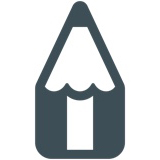


Gone are the days of traditional school readiness programs where children would spend blocks of time each day specifically learning to identify letters, practice phonemic awareness, count objects, identify numbers and more. While it was previously thought that a child’s formal education begins once they go to primary school, over the last decade we have realised that, in fact, a child’s journey to being ‘school ready’ begins long before they even step foot into a preschool setting.
What if we told you that a child begins their school readiness journey as soon as they are born? That before they reach two years of age, your child is showing signs of developing a readiness for school, and this continues to do so throughout each stage of their early years.
The Early Years Learning Framework (EYLF) guides our practices in early childhood education and care and contains elements which our curriculum programs at Little Pines are closely linked to. The EYLF is underpinned by principles which are highly valued in a child’s early education. “Belonging” refers to a child’s sense of security and safety in their environment. One cannot learn and excel in all developmental areas if they don’t feel a connection to their environment and those within it. It refers to everybody’s inherent need to belong to a person or place. “Being” refers to who the child is and everything they bring to the collective – their thoughts, curiosities, ideas, opinions, beliefs, culture and experiences. “Becoming” refers to how everything that happens now, is influencing the person the child is becoming.
A shift from preparing children for school to preparing children for their transition to school is required if we want our children to feel as confident and capable as possible when walking into a classroom on their first day of big school. Readiness is a “process that occurs over time and is not complete by the first day of Kindergarten” (Meisels, 1999, p.62). Transitions can highlight feelings of uncertainty and vulnerability and can cause setbacks in some. Children with a stronger sense of belonging and self-worth, who have developed dispositions including persistence, independence, courage and curiosity are likely to feel more prepared for their transition to a new environment, with new friends, new teachers and new expectations.
At Little Pines each stage of a child’s learning journey is cherished and celebrated, from the moment an infant displays recognition towards their educator to the time a child takes their first steps, says goodbye to their parents without becoming upset, leads a group of children during play and more. Instilling a life-long love for learning in the formative years is vital in preparing children for their transition to school. By providing opportunities for them to be involved in projects and experiences which stem from their own curiosities, we are teaching children that learning is fun and complex, that their ideas and opinions are valued, and that being ready for school involves much more than just knowing your ABC’s or counting as high as possible.
References
https://thesector.com.au/2019/01/02/school-readiness-through-a-contemporary-lens/
BY KATARZYNA WIECZOREK-GHISSO
Meisels, S. J. (1999). Assessing readiness. In R. C. Pianta & M. Cox (Eds.), The transition to kindergarten: Research, policy, training,and practice (pp. 39-66). Baltimore, MD: Paul H. Brookes.